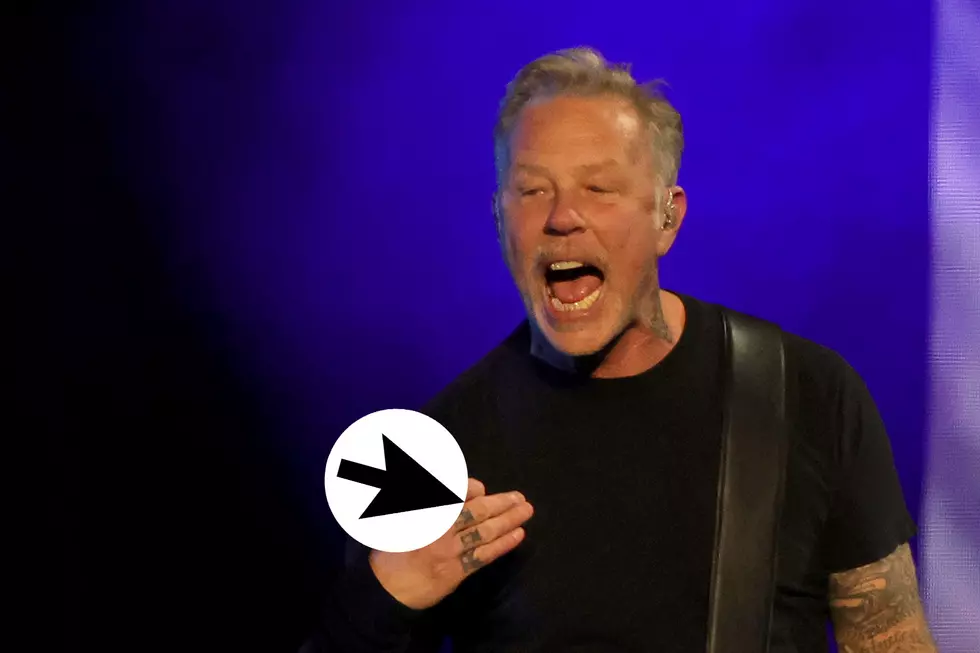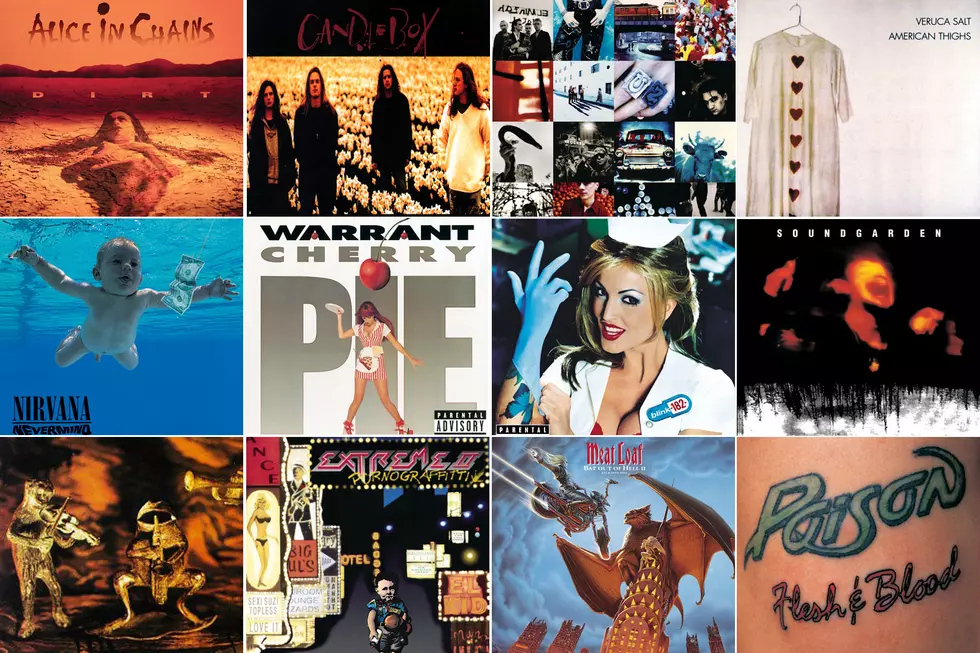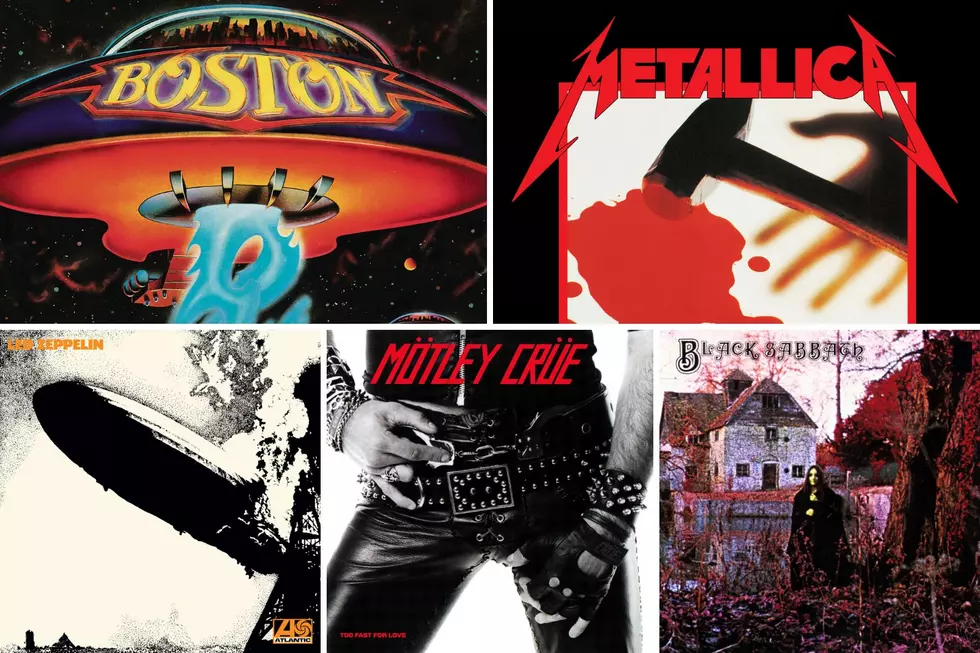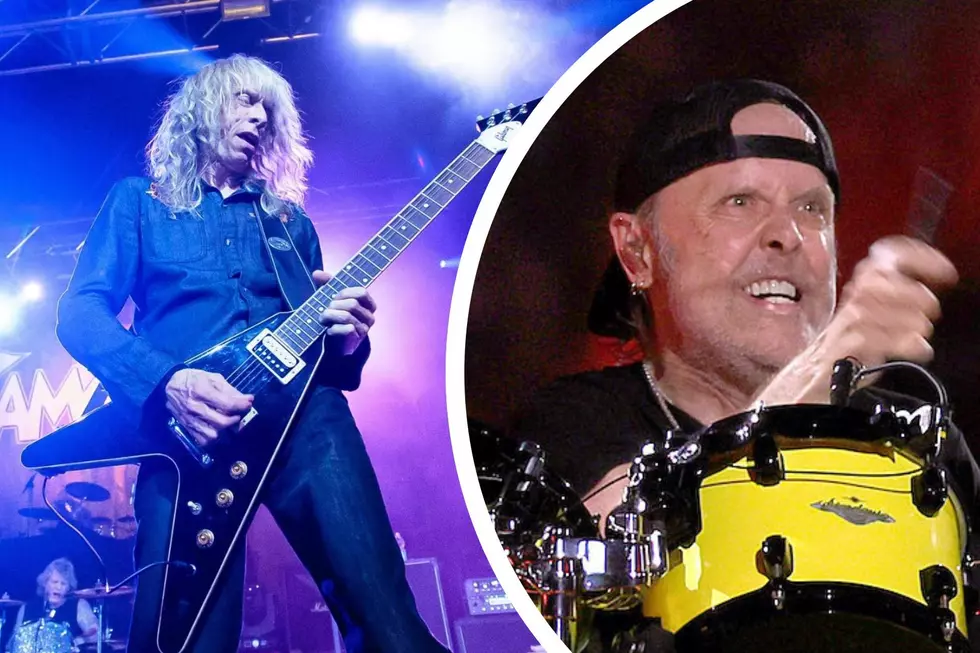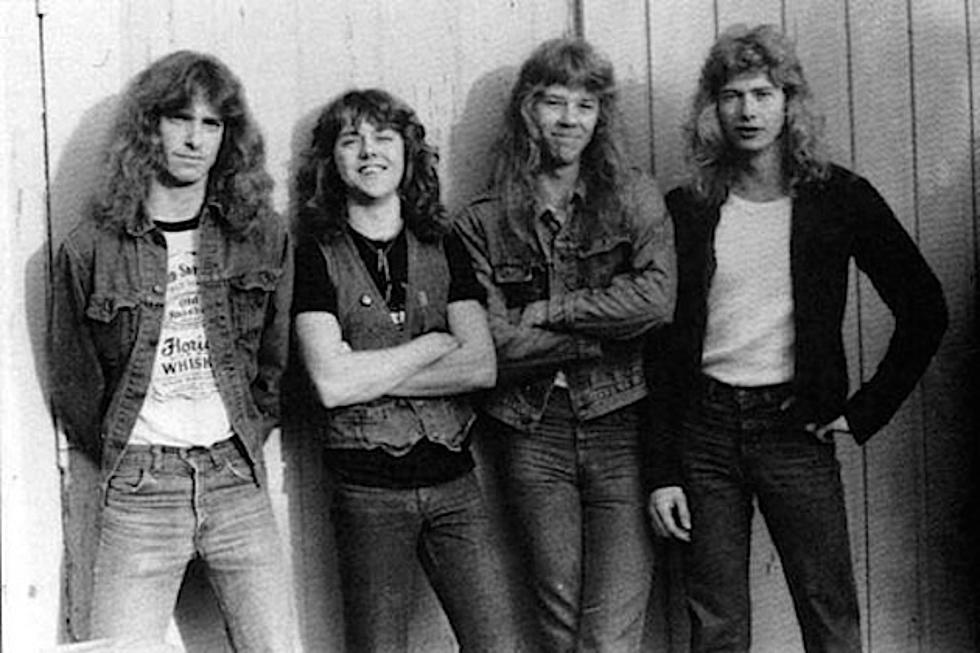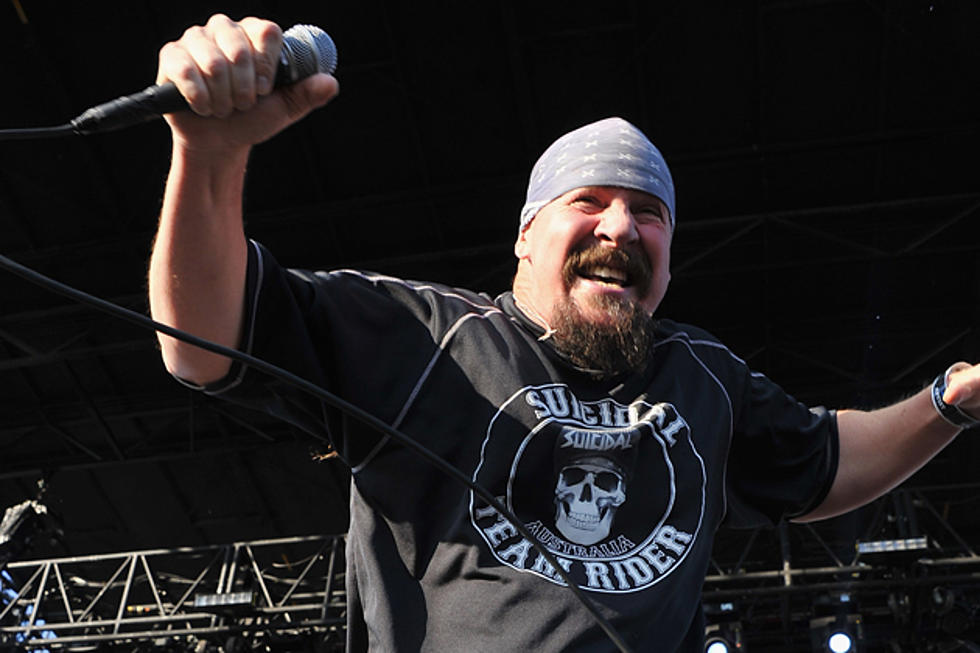
Suicidal Tendencies’ Mike Muir on ’13’ + Playing Metallica’s Orion Fest With Infectious Grooves
Suicidal Tendencies frontman Mike Muir was the guest on Full Metal Jackie’s radio show this past weekend. Muir spoke all about the band’s latest disc, ‘13,’ as well as their approach to creating music. He also talked about touring and playing this year’s Orion Music + More Festival with Infectious Grooves. If you missed Full Metal Jackie’s show, check out her interview with Mike Muir below:
We’re here to talk about the brand new album ‘13.’ It’s been a lot of time coming. Did the 13 songs that wound up on the album go through lots of changes?
[Laughs] When it came all down to it, it probably did because we were close to 160 songs, but there were a lot of changes in the studio right up until the very end. I think if it hadn’t been so long we probably would still be recording right now, but we actually kind of enjoyed that process. Putting records out isn’t very fun but recording is fun.
That’s a lot of songs.
Yeah, I think one of the things is the way music is now and doing your own thing. It used to be you put out a record and you went on tour for a year or so, you got back, took a little time off and then you went in the studio and recorded 15 or 20 songs and you picked them and put it out. I don’t think that is necessarily the way things are anymore and the fact that things don’t sell or anything like that. Then it gets to the point like, “Why are we putting out something and kind of defend it in a sense because all of our records always get attacked when it’s something we love.”
Ten years ago we got our own studio and we have that ability where it’s not like, “Okay we got three or four weeks, we have to get everything done and then that’s it.” You’re able to go into the studio anytime and write and when you do that you’re not sitting there going, “How’s this song going to fit in on a Suicidal record?” You just record and you do what you like and you have a lot of fun. I think it was at the end when it started getting to so many years where we were like, “We need to kind of get this done.”
Mike, does the importance of Suicidal affecting the initial crossover between punk and thrash ever influence your approach to music now?
Well, I think in the main way it does. When our first record came out, the punk fans said it sucked and the metal fans said it sucked. Then we did our second one and they said our first one was great and our second one sucked, then with our third one they said our first two were great and our third one sucked. [Laughs] So you sit there and you realize, we’re not trying to do a record people will like. I know that so many people over the years are like, “What’s it going to sound like?” and we don’t try to do records based on genre, we try to do records that we think are great.
Having a record that’s been out for 30 years and people still listen to it; I think that’s the importance. You want to have something that’s relevant, that people hear for the first time but still like it rather than it be a record that sounds like it came out in 2013. And in 10 or 15 years from now you’re like the flock of seagulls in an old movie – you want to make it look retro or something.
For us I always said, “It’s not how many people hear a record when it first comes out or what they think, it’s how many people 20 years from now that aren’t even born now, when they hear it they go, ‘Wow that’s a great record.’” It’s easier to fit in and do something that will last the test of time, and time will only tell on that one.
Musically, what has surprised you most about the way Suicidal Tendencies has evolved over the years.
To me I look at it differently, it’s like people will say things and I’ll go, “Oh, I don’t really see it that way.” Sometimes people will say, “Why are you always trying to be different?” and I’m like, “I’m not trying to be different, I’m trying to do what I think is great.” There’s a lot of different definitions of great; one is going back. Like, if I was to go back in a time machine and play this to me when I was 14, 16, 18 or whatever, I know I would love this record but I wasn’t a genre kind of a person.
I know a lot of people going back into that genre way and they’ll hear something and it’s like, “Oh that’s not this style,” so they don’t listen, but that’s always happened to us. I’ve had so many people over the years just being at some random spot and someone will see me and go, “Man, I got to tell you I said that one record sucked and seven years later I listened to it and I really like it.” [Laughs] It’s like a confessional, it’s like, “Okay cool, thank you, I appreciate that.” Then a lot of times, like I said, people listen for what they think they want or what they expect, but in the long run, it’s better to do what we think is great.
You’ve always been outspoken in your opinions. Do you consider yourself an activist, at all?
Of course not. My dad always said, “Don’t say anything unless you mean it,” and when I say things people know I mean it. You don’t have to yell and scream and stuff, but I’ve never been afraid to stand up for what my beliefs are, but in the same sense I never try to put forth my beliefs on other people and I think that’s where the world gets it wrong. We got too many people that are trying to get people to follow them. I’m not trying to get people to follow me, but I’m trying to get people to lead themselves to get to the path that they should be on.
I think we get very confused and we get very scared, and fear is a very powerful thing that people make even more powerful than it should be rather than making it a motivator or something that makes you put a little more effort in and [makes you] prepare a little more for what you think is going to happen. A lot of the time it just causes people to shut down. I think for us, music is just a small part of life and you do it right so that it helps motivate you to live a better life.
It’s one thing to hear songs that make you want to go out in the pit and slam, it’s another thing to hear a song and the more you listen to it you go, “Let’s take on the day and the real world.” That what we try to do, make music for the real world.
I saw some shows pop up in the Fall again for the U.S. Is there going to be another full fledged tour happening in the Fall in the states?
Yeah, it’s kind of crazy because we have different people doing everything but we’re finishing this tour up in the middle of May, then we go straight to Mexico and play some festivals there. We have a couple weeks off because we’re going to do the Orion Festival with Infectious Grooves – we’re excited about that. Robert Trujillo of Metallica is doing it with me and Dean [Pleasant] and Stephen Perkins, who played on some of the first Infectious records, Jim Martin of Faith No More is going to play the other guitar, so we’re really excited about that. A lot of people are excited about it and I think it’s going to be a lot of fun. Then we go to Europe for a month and then to South America for 13 shows and France for 13 shows and we’ll be back in the States for the late fall.
Awesome, we’ll you’re going to be pretty busy this year.
Yeah, busy and trying to take a little time off so we can keep our sanity and keep our families and everybody happy and not go crazy and to be able to make every show matter.
This coming weekend, Full Metal Jackie will welcome Tim Williams of Vision of Disorder to her show. Full Metal Jackie can be heard on radio stations around the country — for a full list of stations, go to fullmetaljackieradio.com.
More From Loudwire

